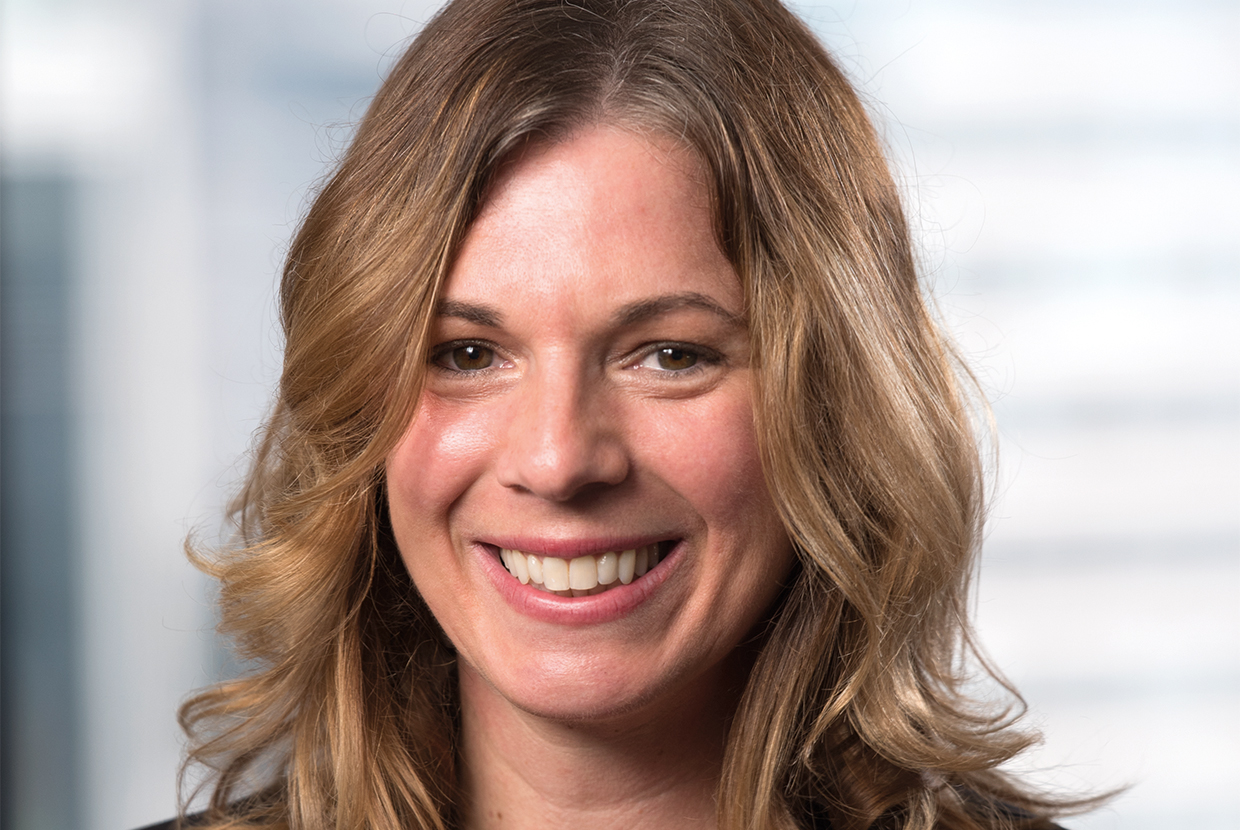Jessica Schnabel is the global head of the Banking on Women business at IFC, where she is responsible for expanding access to financial services for women-owned SMEs. She speaks to Eleanor Wragg about how banks that focus on gender equality within their ranks are better placed to serve female-run businesses.
“I am always so envious when I read bios of accomplished people who knew from the age of five years old what they wanted to be professionally. That was not the case for me,” says Jessica Schnabel. After graduating from Indiana University with a bachelor’s degree in political science and literature and multiple career paths in mind, she joined the United States Peace Corps and spent three years as a teacher and community development leader in Guinea. “That experience made me ask different questions. I decided I had to develop a career that had mission and purpose,” she says.
While a career in banking may not immediately spring to mind as a way to make a mark on the world, Schnabel argues that banks are extremely important agents of change.
“The idea of being a banker seemed very boring, until I understood that responsible financial institutions establish discipline and sustainability in the real economy. They make decisions about which companies and individuals get financing. So I became a banker because I saw it as a path to change the world.”
After joining the International Finance Corporation (IFC) in 2004, initially as a programme co-ordinator and then investment officer for SME development, she spent over 10 years advising companies and investing in financial institutions to open up opportunities to support and finance SMEs. In 2015, she was asked to lead IFC’s Banking on Women business, and admits that she initially had doubts about whether placing a gender lens on finance made for a viable business case.
Before agreeing to take up the role, she spent several weeks researching the feasibility of investing in women’s business growth. “I needed to understand for myself whether this represented a real value proposition for my own institution and for our financial sector clients, because without that, the work of gender equality and diversity more broadly would need to be a different kind of activity, a more philanthropic one,” she explains.
Gender-focussed banking
The figures, however, speak for themselves. According to IFC research, women customers bring strong, stable, sticky deposits to financial institutions, can stabilise bank balance sheets, and can increase assets, profitability, and market share. Loans to women-owned SME businesses have lower default ratios. Women-owned businesses also represent a vast untapped market for growth – globally, just one in five exporting companies is owned by a woman, with access to finance seen as a major barrier.
“That was when I made my decision to take on this role,” says Schnabel.
Now, five years on, she works on building IFC’s global investment and advisory services portfolio with financial institutions in emerging markets to radically scale-up and improve financial services for women-led SMEs. To date, IFC’s Banking on Women business has invested over US$2.6bn into financial institutions around the world exclusively to finance women-owned businesses. That figure is growing: the launch last year of the Banking on Women-Global Trade Finance Programme (BOW-GTFP) in partnership with Goldman Sachs 10,000 Women will see the 285 banks in IFC’s GTFP increase trade finance for women importers and exporters around the world. Capital markets investors are also taking note: IFC’s partner banks have already begun to issue gender bonds in Turkey, Thailand and Indonesia to finance their loans to women-led SMEs.
Diversity matters
But simply telling banks to focus on women customers with their financing activities isn’t enough, as Schnabel explains. One issue that she sees is a lack of data about women-led businesses. “One of the first things I do is ask: ‘What is your current outstanding portfolio of loans to women-owned businesses?’ There is not a financial institution that I have met yet that has known the answer to this without further investigation.”
The World Bank Group and its partners are now in discussions with numerous central banks around the world to explore systematic recommendations for financial institutions to track and produce aggregate data about their business with women-owned companies, which Schnabel hopes will drive gender-focused decision-making in the future.
For banks to be able to tap the opportunities represented by women-led businesses, they must also focus on gender diversity within their institutions, says Schnabel.
The financial industry as a whole still has some work to do when it comes to gender balance in key roles, but Schnabel is convinced that the opportunities for women in finance have never been greater. “When I found IFC and when it found me, there was a real alignment of mission and purpose,” she says. “Now, as financial institutions around the world start to bring sustainability and diversity front and centre, more and more are pursuing bottom-line and strategic value from diverse employee and leadership talent, diverse customers, and diverse investors.”







